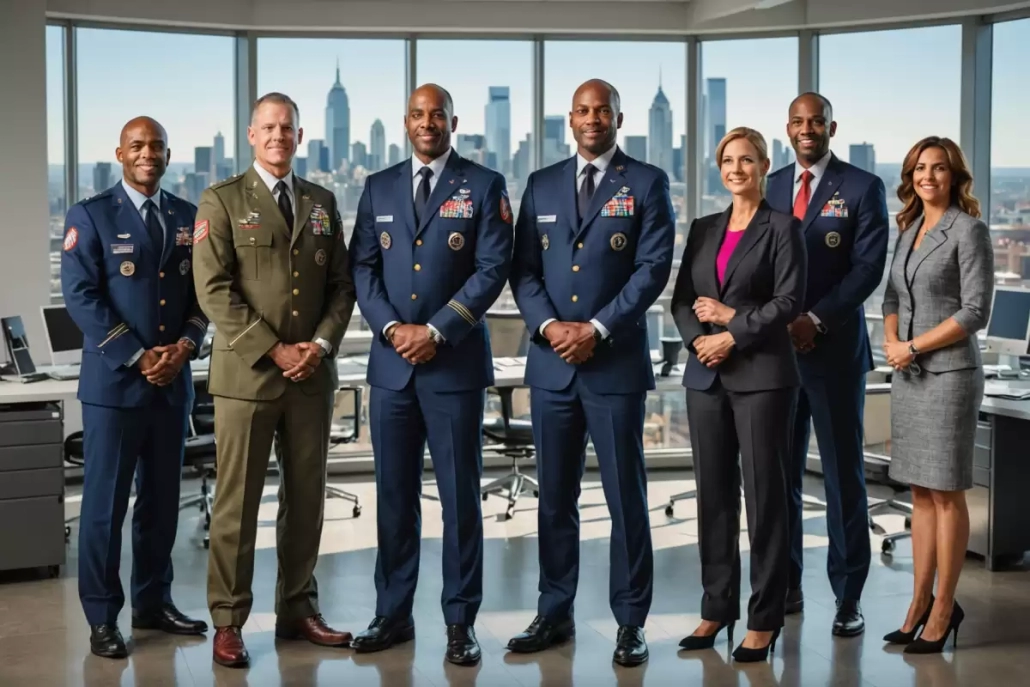From Military Precision to Civilian Success: Navigating Your ADF Career Transition
Transitioning from the Australian Defence Force (ADF) to a civilian career is a journey that many veterans find both challenging and rewarding. It’s a bit like switching from a well-rehearsed symphony to a jazz improvisation—exciting, unpredictable, and full of potential. The skills honed in the military, from leadership to strategic thinking, are highly valued in civilian roles. But how do you translate those skills into a new career path?
First, it’s crucial to understand the civilian job market. Unlike the structured environment of the ADF, civilian workplaces can be more fluid and less hierarchical. This might sound daunting, but it also means there’s room for creativity and innovation. Start by identifying industries that align with your skills and interests. For example, if you thrived in logistics during your service, consider roles in supply chain management or operations.
Networking is another key component of a successful transition. Ever heard the saying, “It’s not what you know, but who you know”? In the civilian world, this often rings true. Connect with fellow veterans who have made the leap. They can offer invaluable advice and might even point you towards job opportunities. Platforms like LinkedIn are great for expanding your professional network—think of it as your digital business card.
Now, let’s talk about your CV. It’s your first impression on potential employers, so make it count. Highlight your military experience in a way that resonates with civilian employers. Focus on achievements and skills that are relevant to the job you’re applying for. And during interviews, be ready to discuss how your military background has prepared you for the role. Practising with a friend or mentor can help you refine your responses.
Continuous learning is another important aspect of staying competitive in the job market. Consider taking courses or certifications that enhance your skills. Whether it’s learning a new software program or improving your leadership abilities, investing in your professional development is always a smart move. It shows employers that you’re proactive and committed to growing in your career.
For those looking for more tailored advice, Ironside Resources offers a wealth of information and support for veterans transitioning from the ADF. Their blog post, “Jobs For Veterans Transitioning From The ADF – Discover Your Next Chapter,” delves into the specifics of how military skills translate to civilian jobs. They provide practical examples of roles where veterans can excel, such as project management, security consulting, and IT. It’s a must-read for anyone navigating this transition. You can find the full article on their website here.
Ironside Resources also offers professional resume writing services and career consultations, helping veterans tailor their applications to attract top jobs. It’s like having a personal career coach guiding you through the process. If you’re ready to take the next step, consider booking a free career consultation with them. Their team is dedicated to helping veterans find fulfilling civilian careers.
Finally, remember that transitioning to a civilian career is a journey, not a sprint. It’s okay to feel a bit lost at times—many have walked this path before and found success. For additional support, the Department of Veterans’ Affairs in Australia provides resources and assistance for veterans, helping them navigate the complexities of civilian life. Their website is a valuable resource for anyone looking to make a smooth transition.
In conclusion, while the journey from the ADF to a civilian career can be challenging, it’s also an opportunity to explore new interests and redefine your career path. By leveraging your skills, expanding your network, and continuously learning, you’ll be well-equipped to succeed in the civilian workforce. And remember, you’re not alone—there are plenty of resources and support systems available to help you along the way.



 Entrepreneur Network Australia
Entrepreneur Network Australia

